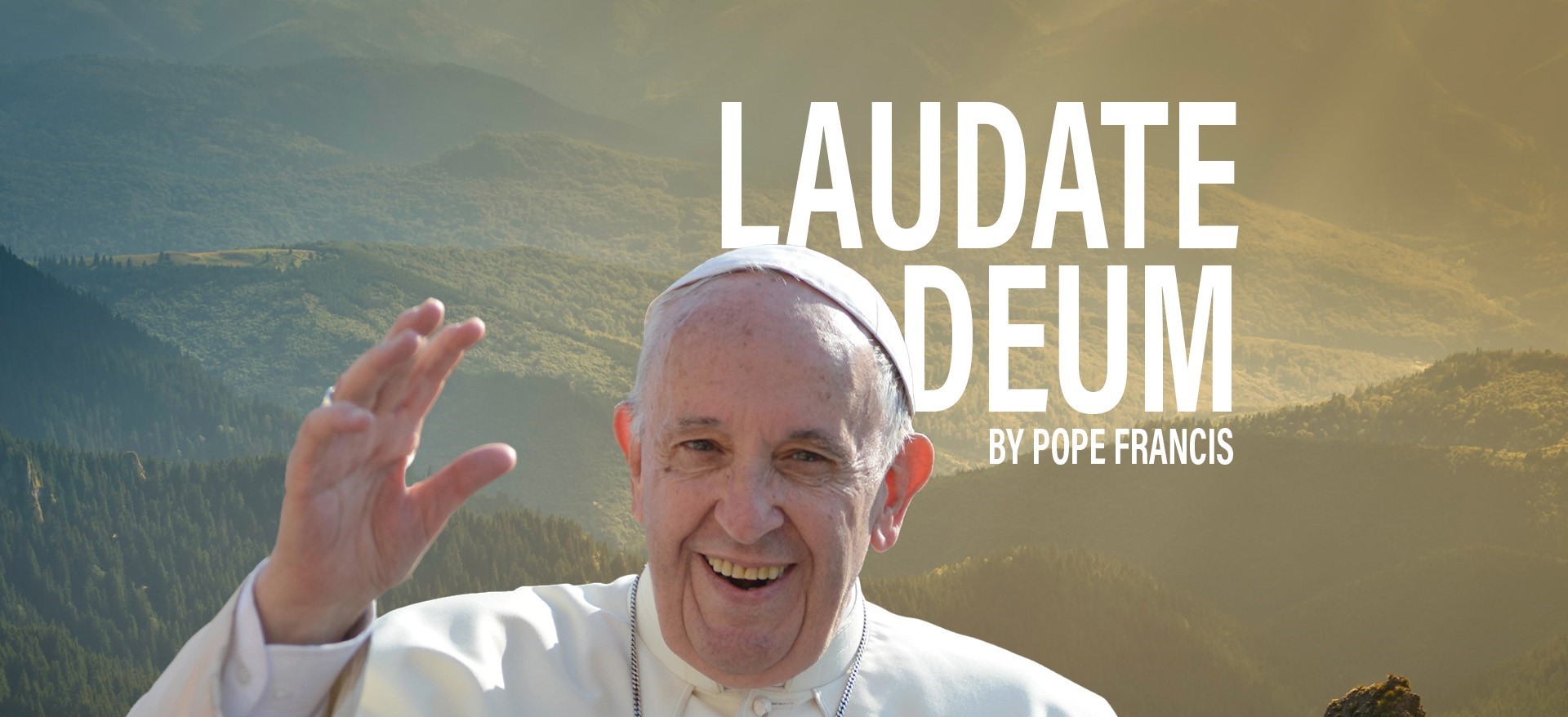Five Takeaways from Laudate Deum
On October 4, the feast of St. Francis of Assisi, Pope Francis released Laudate Deum, a follow-up to his landmark encyclical Laudato Si’. Here are some points in Laudate Deum that stood out to us.
On October 4, the feast of St. Francis of Assisi, Pope Francis released Laudate Deum, a follow-up to his landmark encyclical Laudato Si’. Here are some points in Laudate Deum that stood out to us. The following article was published in the November-December 2023 issue of NewsNotes.
Climate change is real and caused by human activity.
Pope Francis first dispels common climate skepticism myths, though as he writes, it is increasingly hard to be a climate change skeptic in good faith. “No one can ignore the fact that in recent years we have witnessed extreme weather phenomena, frequent periods of unusual heat, drought and other cries of protest on the part of the earth.” [5] Pope Francis still makes these clarifications, “which may appear obvious, because of certain dismissive and scarcely reasonable opinions that I encounter, even within the Catholic Church.” [14]
Climate change damage is unequally distributed.
Pope Francis calls climate change “a silent disease that effects everyone.” [5] Lessons from Covid-19 show that disasters affecting humankind reverberate past borders and boundaries. “Everything is connected, and no one is saved alone.” [19] But some will suffer more than others. Experience has shown that it is the poorest people who are least able to equip themselves to weather unusual natural disasters, and the ones most devastated in the wake of calamity. This hardly seems fair given the share in the blame for the climate crisis that the poorest have.
Pope Francis mentions the Loss and Damage Fund as one of the few promising developments of the most recent UN climate conferences: “it was proposed to create a mechanism regarding the loss and damage caused by climate change, which recognizes as those chiefly responsible the richer countries and seeks to compensate for the loss and damage that climate change produces in the more vulnerable countries.” [46]
Technocracy is not the answer.
We in Western nations are guilty of an over-reliance on technology and innovation to solve problems. Pope Francis writes that, while it is worth pursuing carbon capture and sequestration, “we risk remaining trapped in the mindset of pasting and papering over cracks, while beneath the surface there is a continuing deterioration.” [57]
Furthermore, we are trapped by our narrow economic thinking to not see and judge the severity of the crisis for what it truly is. He explains, “the mentality of maximum gain at minimal cost, disguised in terms of reasonableness… makes impossible any sincere concern for our common home and any real preoccupation about assisting the poor and the needy discarded by our society.” [31]
Given the evidence of our high emissions relative to other poorer nations “a broad change in the irresponsible lifestyle connected with the Western model would have a significant long-term impact.” [72] Instead of our current paradigm, “we need to rethink among other things the question of human power, its meaning and its limits.” [28]
World cooperation is necessary, but our responses so far have been inadequate.
Pope Francis writes on the upcoming UN Climate Conference in Dubai, as well as all the previous conferences, which have collectively failed to make the changes needed. He repeats in 2023 what he wrote in 2015: “the accords have been poorly implemented, due to lack of suitable mechanisms for oversight, periodic review and penalties in cases of noncompliance. The principles which they proclaimed still await an efficient and flexible means of practical implementation.” [52]
But while the results have been disappointing, “to say that there is nothing to hope for would be suicidal.” [53] Pope Francis is encouraged by progress from movements that have bypassed the usual UN protocol, specifically naming the Ottawa Process, a treaty negotiation process, as an example of how civil society “is capable of creating effective dynamics that the United Nations cannot.” [37]
Humanity is intimately connected with the rest of God’s creation.
With Laudato Si’ and with Laudate Deum, the common message is our need as a species to right our relationship with nature. Our human activity has already affected plant and animal life: The increase in ocean temperatures and their salinity is damage not likely to be undone for hundreds of years. “This is one of the many signs that the other creatures of this world have stopped being our companions along the way and have become instead our victims.” [15]
Pope Francis lauds the personal responsibility that individuals take on to protect their world, even if they are small fixes in the face of society-wide problems. In one of the final exhortation, Pope Francis writes, “I ask everyone to accompany this pilgrimage of reconciliation with the world… and to help make it more beautiful, because that commitment has to do with our personal dignity and highest values.” [69]
Faith in action
Read the full exhortation at https://mogc.info/LaudateDeum
Photo of Pope Francis via Wikimedia Commons

